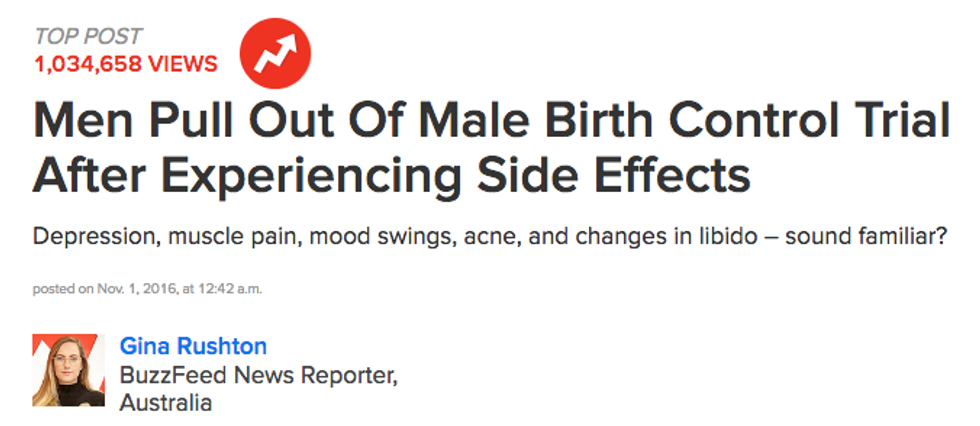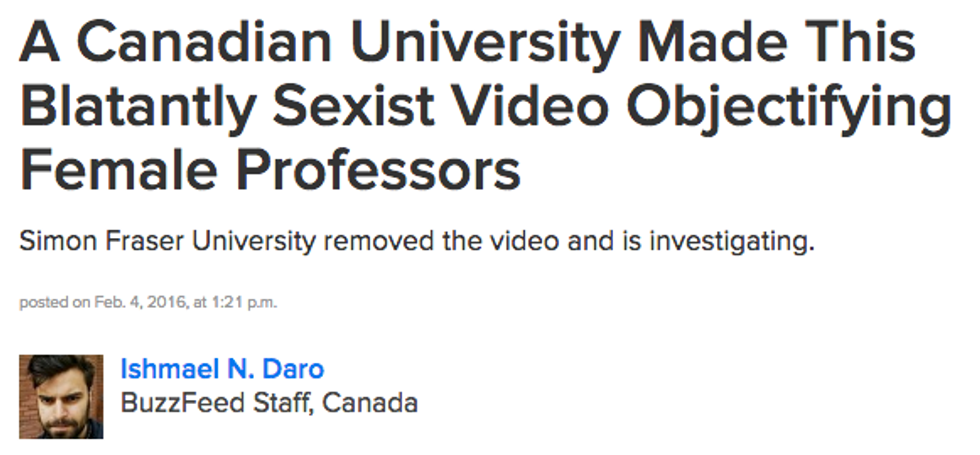In February of 2016, Scaachi Koul, a Senior Writer for BuzzFeed Canada, tweeted a request for pitches stating that BuzzFeed was "...looking for mostly non-white non-men," followed up with, "If you are a white man upset that we are looking mostly for non-white non-men I don't care about you go write for Maclean's." She then followed up again, tweeting, "White men are still permitted to pitch, I will read it, I will consider it. I'm just less interested because, ugh, men."
What's wrong with this picture?
As a writer and an editor myself, I appreciate the need for diversity within your team - it's something I strive for, particularly as I head up a team in the heart of the South - but something's a little off with these tweets. Maybe it's the tokenism, which here seeks to target people of color not because of their value in the Buzzfeed community and their talent as writers, but simply because of their race. Or, maybe, it's those final, biting words: "Ugh, men."
I get where she's going with this. Buzzfeed, statistically, receives most of its readership from women, so it makes sense to request pitches exclusively from female writers. Content for women, should, of course, be created - at least mostly - by women. But that isn't what Buzzfeed professes to be; it doesn't exist purely to create and curate content for women, and it's never pretended otherwise. Buzzfeed is the self-proclaimed "leading independent digital media company delivering news and entertainment to hundreds of millions of people around the world."
More concerning, though, is the attitude behind those two final words.
What's confusing about Buzzfeed's pseudo-feminism is that on the surface, they really do appear to be the epitome of modern, internet-soaked feminism, in all its gif-filled and sparkly glory. Indeed, Buzzfeed does its best to present itself as a feminist publication, and in some ways, it succeeds. It published several stories during the election cycle that condemned the sexist rhetoric that ran unchecked during the last 18 months. It generally runs articles which are heavily pro-women, publishes pieces that matter to women (and, therefore, the world), and employs a diverse panel of women (including women of color, LGBT women, and women of all body types), for which, in my opinion, they deserve commendation.
But here's the thing: exclusion isn't feminism, and disparaging men definitely isn't feminism.
Remember when Buzzfeed posted that awful (and hugely inaccurate) story about a male birth control study which insinuated that the men who dropped out of the study did so because they were experiencing side-effects similar to symptoms experienced by women with PMS?
The writer of that piece is quick to dismiss the pain of the men in the trials, and even goes as far as to insinuate that these men were weak, but she skates over the fact that men experienced reduced rates of fertility, as well as depressive episodes and even mood disorders. But of course, "ugh, men." Men deserve to suffer, right? (To be fair - another Buzzfeed writer published a follow-up story pointing out the inaccuracies of the original story, but the damage had largely already been done. The fact remains that original story was widely shared despite the follow-up)
Buzzfeed regularly publishes fiercely opinionated (and rightly so!) articles that condemn female body-shaming. On the other side of that, though, are articles such as this one, which praises Lorde for body-shaming Diplo.
Granted, Diplo started the dialogue by suggesting the use of crowdfunding to get Taylor Swift a bigger butt - but I'm pretty sure this is one of those instances where fighting fire with fire is absolutely counterproductive. The kind of body-shaming this and other such endorsements promotes - body-shaming over the size of a man's genitals - is trite, sexist, and downright wrong. Buzzfeed proclaims the wrongness of shaming a woman for her breast size while hailing Lorde for "clapping back" with taunts about Diplo's body.
On that thread, Buzzfeed also condemns instances of female objectification in the media - again, rightly so - but it fails to see its own problem with objectification, this time of the male body.
Can You Guess The Celebrity By The Imprint Of His Bulge?
The Most Impossible Game Of "Would You Rather": Butts Vs. Bulges
Stop What You're Doing And Look At This Hot Harry Potter Boudoir Shoot
Yikes. Worryingly, all three of these are real - and fairly recent - articles published by Buzzfeed, and besides being cringe-y and hopelessly vapid (opinion: if you get salaried pay for creating content, you should probably do a little better than this nonsensical clickbait, but that's a segue I'd rather not get into), these headlines are also ridiculously hypocritical. Imagine a headline that read "Can You Guess The Celebrity By The Imprint Of Her Boobs?" What about "The Most Impossible Game Of 'Would You Rather': Boobs Vs. Butts." Neither of those would be okay-ed for publishing (at least not by Buzzfeed) - so why is it okay for them to publish the same headlines that objectify men? Feminism - true feminism - isn't about women being better than men, and it isn't about turning the tables of objectification and sexism around and subjecting men to the same nonsense women have faced for centuries. It's about equality, for every person, and making it about "Women versus Men" is a gross oversimplification, and is completely contrary to what feminism is actually about.
And so, Buzzfeed, readers of Buzzfeed, feminists, everyone - don't proclaim your feminism while simultaneously contributing to the very inequality you're trying to stop. Don't objectify, body-shame, or ridicule. Always fight for what you believe in, and always call out inconsistencies, but don't lose sight of what you're really trying to accomplish.























